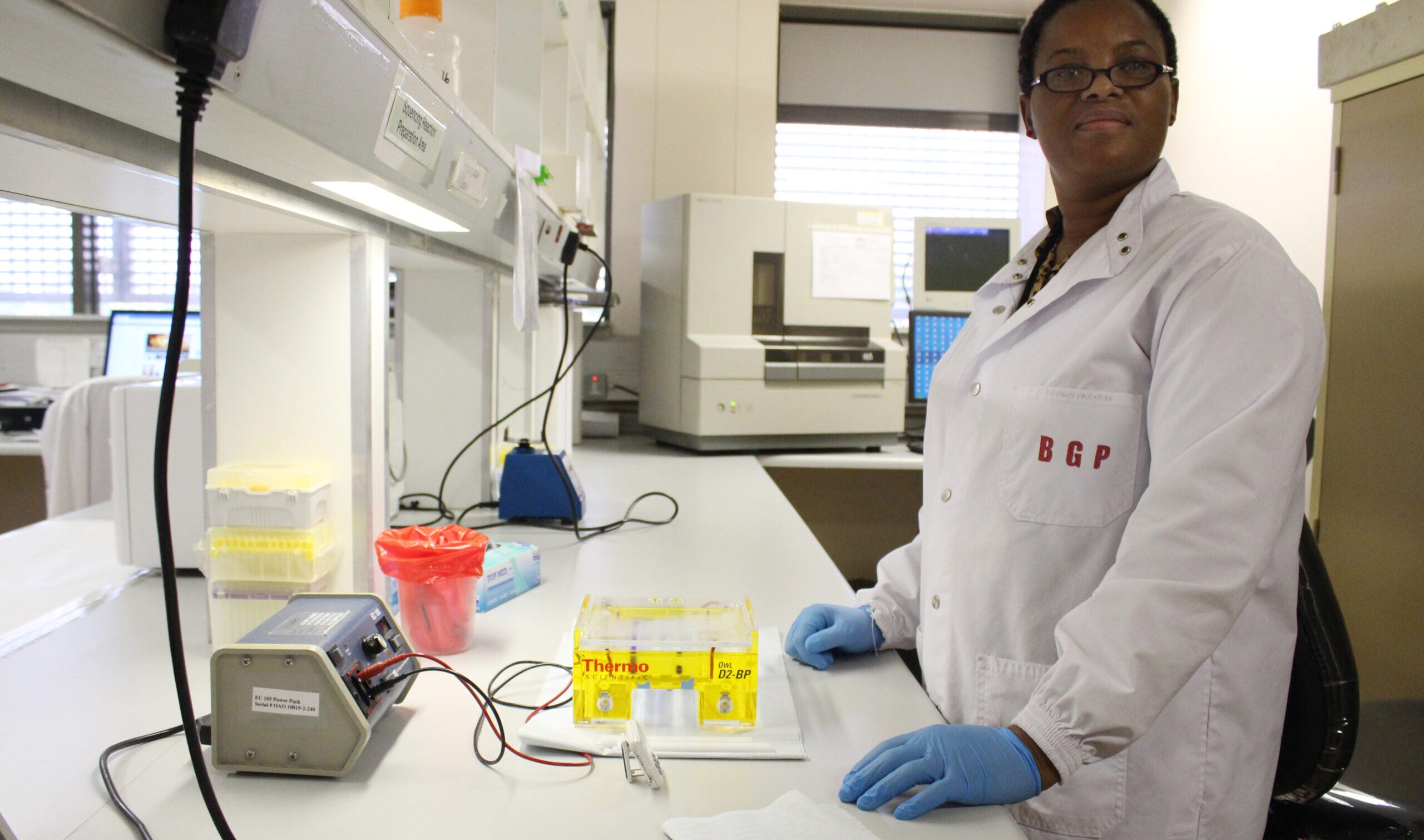Since 1996, the Harvard T.H. Chan School of Public Health (HSPH) has supported laboratory scientific excellence in southern Africa through the Botswana-Harvard AIDS Institute Partnership (BHP), a unique collaboration between HSPH and the Botswana government (https://www.thinkglobalhealth.org/article/inside-lab-identified-omicron). Beginning in early 2020, BHP has helped lead the effort to fight SARS-CoV-2 in Botswana, partnering with the Botswana Ministry of Health (MOH) to perform almost all variant testing and over a third of all general COVID testing in the country.
In late 2021, scientists at the Botswana Harvard AIDS Institute Partnership (BHP) lab, led by BHP lab director Dr. Sikhulile Moyo, were the first in the world to identify the Omicron SARS-CoV-2 variant and the first to publicly share the variant sequence (https://www.bostonglobe.com/2021/11/29/metro/how-harvard-affiliated-lab-botswana-became-first-identify-omicron-variant/?event=event12 and https://www.aljazeera.com/features/2021/12/14/inside-the-botswana-lab-that-discovered-omicron). This achievement built on the research capacity at BHP, and was remarkable given that sequencing was done on a relative shoestring budget using suboptimal equipment and computing power re-purposed from earlier HIV sequencing efforts. But it was also not a coincidence: BHP scientists with deep expertise in viral sequencing and analysis of virus phylogenetic data mapped out a smart sampling and sequencing strategy, meticulously analyzed their own data, and had the expertise to immediately recognize the profound implications of the new Omicron sequence. BHP currently performs ~40% of all COVID-19 PCR testing and all of the SARS-CoV-2 sequencing for the country of Botswana (which has one of the highest SARS-CoV-2 sampling densities on the continent).
BHP senior scientists are key members of Botswana’s COVID task force. However, to perform this work and to keep up with the volume of testing and the surveillance efforts needed for the country, laboratory personnel have been diverted from funded research to unfunded COVID-19 work, and the cost of test kits and reagents to perform this work is not fully covered by the Botswana Ministry of Health. Keeping up with laboratory testing is critical, and throughout each wave of COVID-19, the BHP laboratory carried on with critical testing efforts and with surveillance for SARS-CoV-2 variants. But our laboratory is in need of supplies and reagents and dedicated manpower to continue this work, especially the variant surveillance, as new sub-variants of the Omicron complex continue to be identified. To maximally assist the Botswana MOH, our goal is to continue the following activities:
1: Continue PCR testing for COVID at current levels (one third of all tests in the country).
2: Identify and monitor variants of concern, especially those associated with changes in the transmissibility or pathogenicity of the virus, or affect diagnostics, vaccines and therapeutics.
3. Identify detailed SARS-CoV-2 genetic clusters in Botswana, in support of national surveillance and outbreak investigations of COVID hotspots (molecular surveillance).
4. Investigate SARS-CoV-2 viral evolution, overall and by HIV status. Because 20% of the adult population in Botswana is living with HIV, we will track the diversity and accumulation of mutations over time by HIV status to better understand how HIV status may contribute to SARS-CoV-2 evolution and mutation.
5: Characterize viral variants in cases of re-infections and post-vaccine infections. We will investigate if new infections from previously recovered individuals are associated with particular variants or genetically distinct from baseline infections.
To support these goals, the Botswana COVID Laboratory Support Fund seeks to raise charitable donations. For more information please contact Dr. Roger Shapiro (rshapiro@hsph.harvard.edu).
We are grateful for any amount that you can contribute!




